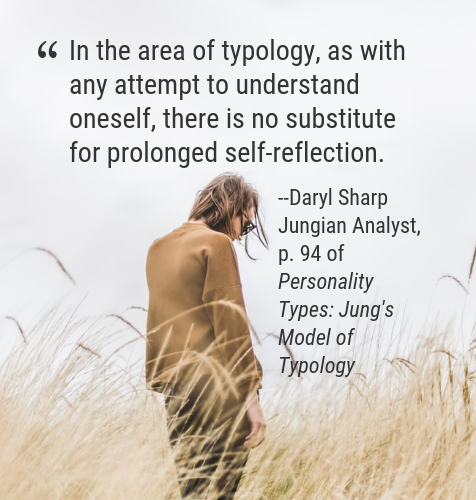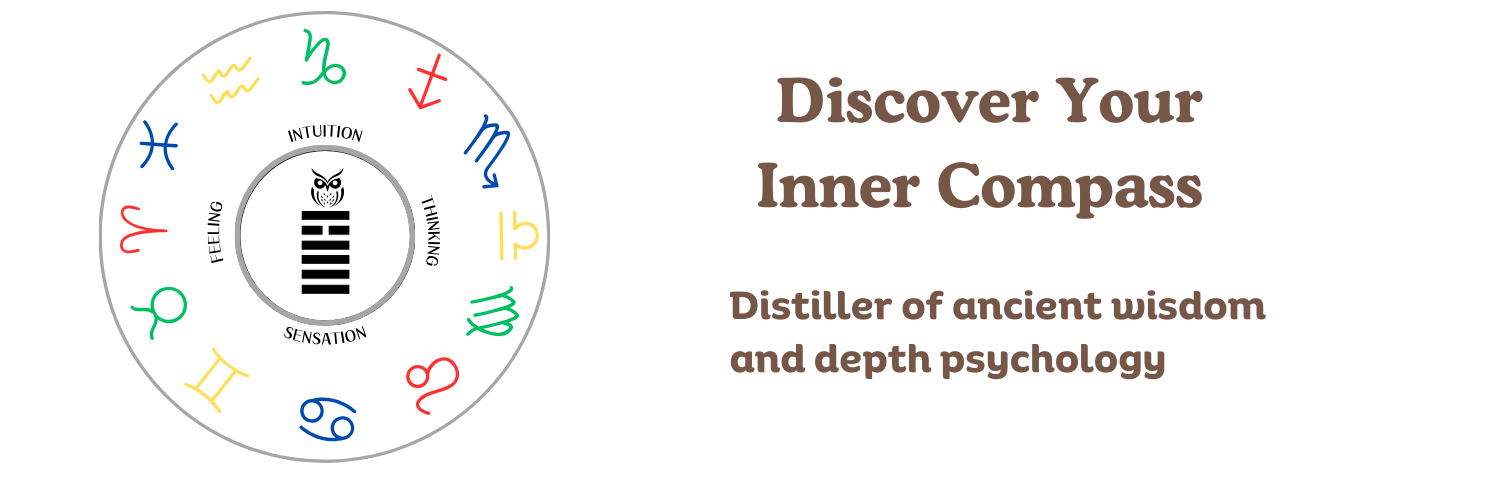It’s pretty much a given that personality tests aren’t consistently reliable.
Yet figuring your type out on your own isn’t so easy either. When Jung created the psychological types, he didn’t use a test. He and the first generation Jungian analysts worked with their clients one-on-one; an analysis typically takes several years.
Jungian analyst Daryl Sharp highlighted some of the problems with type tests in his book Personality Types: Jung’s Model of Typology:
“Type tests do not show the extent to which one’s type may have been falsified or perverted by familial and environmental factors; they say nothing about the way in which one’s usual way of functioning may be determined by complexes; and they do not reflect the ever-present compensating attitude of the unconscious. Typically, it is the persona that takes the test. In addition, the person taking the test may be using one of the secondary or auxiliary functions to answer the questions—or indeed, responding out of the shadow or persona. Above all, type tests do not take into account the experiential reality that a person’s typological preferences can change over time.”
Above all, there should be one thing central to the typing process: prolonged self-reflection. Or, as Jung called it, “self-communing:”

Not everyone has the opportunity to work with a Jungian analyst or a typologist. So here are some questions Sharp suggests that one reflect upon:
What do I habitually do most?
What is my greatest cross?
From what do I suffer the most?
Where is it in life that I always knock my head against the wall and feel foolish?
Sharp says: ” The answers to such questions generally lead to the inferior attitude and function, which then, with some determination and a good deal of patience, may perhaps be brought to a degree of consciousness.”
